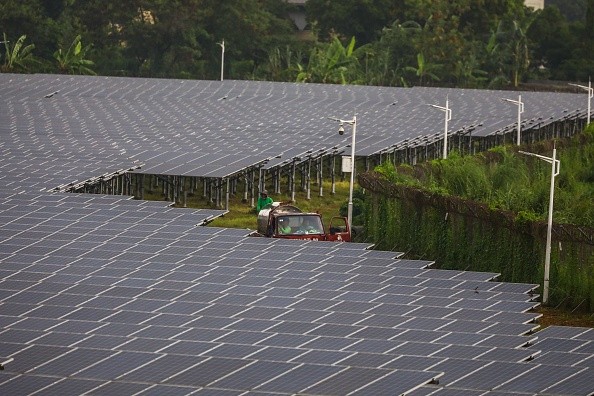According to researchers, the world can transition to a 100% renewable energy grid by 2050 or earlier. The primary components of a new energy system would include solar and wind energy, energy storage, sector linking, and direct and indirect electrification of nearly all energy consumption.

Scientific Consensus
The scientific consensus is moving toward an energy system dependent on renewable resources. Hundreds of scientific research demonstrated the implementation of 100 percent renewable energy systems on a global, regional, and national scale by or before 2050. Since 2010, the number of published research has increased by 27% yearly and has continued to rise. A new system would likely be built mostly on solar and wind energy, energy storage, sector coupling, and direct and indirect electrification of practically all energy consumption, according to research from 15 top worldwide institutions.
Professor Christian Breyer from LUT University states, "a rapidly growing number of researchers conclude that the entire energy system demand can be met based on renewables and that doing so will be cheaper in the long run, while fulfilling sustainability requirements."
Various Energy Sectors
Solar and wind energy, energy storage, sector linking, electrification of all energy and industry sectors, indicating power-to-X and hydrogen-to-X solutions, and future carbon dioxide removal to help stabilize the climate are the main pillars of this new energy system. The subject review in IEEE Access is titled "On the History and Future of 100% Renewable Energy Systems Research."
Research into completely renewable energy sources was first met with much skepticism. Leading academics in the 100% renewable energy systems field have now merged their perspectives. The article discusses the evolution of the study area, the current situation, previous criticism, and future research requirements. In this collaborative research, more than 20 writers representing 15 organizations and 9 nations participated.
Also Read : Gloom Reality: Even the Most Daring Technologies Can No Longer Reverse Impacts of Climate Change
Looking at the Future

Many young people are discouraged because they are lead to believe nothing can be done to prevent climate change. By demonstrating that renewable energy sources can provide the whole world's energy demands at a cost that is less expensive than fossil fuels, we aim to give people hope. Our ideas were mocked when we originally put them forward. Still, this publication demonstrates that they have since entered the mainstream of science, says Auke Hoekstra of the Eindhoven University of Technology in the Netherlands. Hoekstra clarifies the significance of the peer-reviewed paper in a Twitter discussion.
There are many research organizations, and new entrants' newest research is being done, contrary to what some people wrongly believe. Hoekstra says. "By the way, the latest IPCC WG3 report contains dozens of these publications. The fastest increasing areas of research include grid capacity, energy storage, sector coupling, and P2X (electricity to molecules like H2 and back). And for those who ask: what do you do when the wind doesn't blow, or the sun doesn't shine? Everyone at 100%RE is thus extremely aware of this. The fact that these publications develop energy systems without relying on fossil fuels or nuclear power does not establish their ineffectiveness; instead, it demonstrates our ability to do so and the continued affordability of the resulting energy system.
Various Efforts
According to the UN, more than 160 companies with a combined asset value of $70 trillion have committed to decarbonizing the global economy by 2050, which entails the phase-out of fossil fuels. According to Dr. Sven Teske, an associate professor at the University of Technology Sydney, "Our study has demonstrated that we have the tools to establish a worldwide energy supply that is fully dependent on renewable energy."
Related Article : Here's How Listening to the People May Actually Help in Creating a More Sustainable Energy System
For more environmental news, don't forget to follow Nature World News!
© 2025 NatureWorldNews.com All rights reserved. Do not reproduce without permission.





